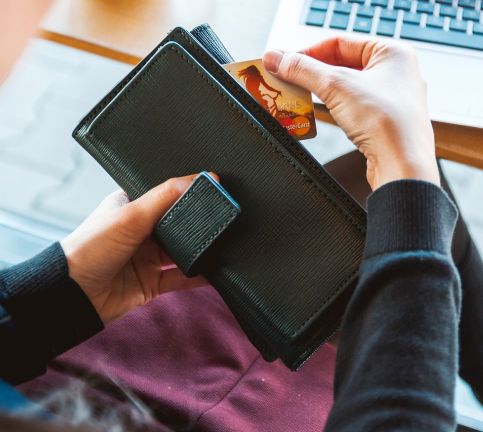Simple and Effective Ways to Build Credit

You will realize how important it is to have good credit when you need to apply for a car loan, a personal loan, an educational loan, a mortgage, or some other loan. However, building credit doesn’t happen overnight, and will require sustained effort on your part for at least six months or more.
Here are some simple and effective ways to build credit and establish your creditworthiness with lenders:
Review your credit report
The three major credit reporting bureaus in the United States—Experian, Equifax, and TransUnion—maintain credit reports, and you can legally get yours from them every year. That is if you have some form of credit in the first place. However, even if you are just beginning to build credit, it is a good idea to check with all the three bureaus. That way, you can make sure that someone has not misappropriated your name and social security number to run up a debt.
Unfortunately, such frauds aren’t uncommon, and, if you happen to be a victim, you need to inform the bureaus and take immediate steps to clear your record.
To revert to the credit report, you will have a credit file with the three bureaus after you’ve had an active credit account for about six months. You should make a point of checking it every year. Around 5% of Americans find errors in their credit reports, and as these can adversely affect your credit score for many years, you need to be proactive about getting the bureaus to remove them as soon as possible.
Open a bank account
While your credit report factors majorly in establishing your creditworthiness, most lenders will also consider it a record of financial trust if you have a savings or checking bank account. Your bank details are generally necessary when you apply for a loan or a credit card. Having a bank account, with a history of deposits and withdrawals, indicates to lenders that you have a regular income source and are fiscally responsible.
However, you should take care that there is no negative activity associated with your bank account, such as a check bouncing due to insufficient funds. That will reflect negatively on you and make lenders cautious.
Pay your bills on time
If you have been paying your utility bills and rent on time, it will increase your creditworthiness with lenders. While the FICO score doesn’t cover the information, lenders can get it from other sources such as the FICO Expansion Score and the Payment Reporting Builds Credit (PRBC) company.
Get a credit card
Having a credit card can help you build good credit, provided that you have been making timely bill payments every month. Ideally, you should pay the balance you owe in full, but if that is not possible, try to make the minimum payment. Lenders will see that you are a responsible credit card user, with a solid credit history, and that will put you in the creditworthy category.
Stick to a few credit card accounts
While it may be tempting to have several credit card accounts, it is best to refrain from making too many applications. If the lender decides that you are not a good candidate and denies your credit card application, the record of that will appear in your credit report for at least two years and will lower your credit score.
So, it is essential to check the requirements for a new credit card and apply for it only if you are eligible. Plus, you should be confident that you will be able to make timely payments on the new card.
Lower your credit utilization ratio
Your credit utilization ratio is dependent on your credit card usage. If you regularly spend up to the credit card limit and are tardy about making your payments, it will reflect negatively on your credit score. It will help, however, if you try to keep your credit utilization to 10 percent or lower than the allowed limit and make a point of paying your credit card balance in full every month.
Hopefully, these suggestions will come in handy in building your credit and in helping you acquire credit and loans when you most need them.







